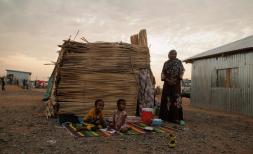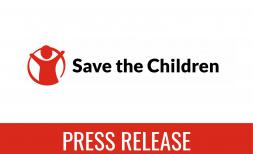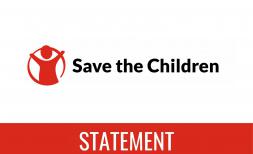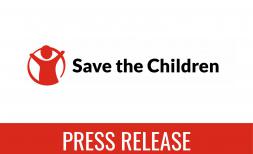Price hikes and currency freefall push Yemen’s children further into hunger – SAVE THE CHILDREN
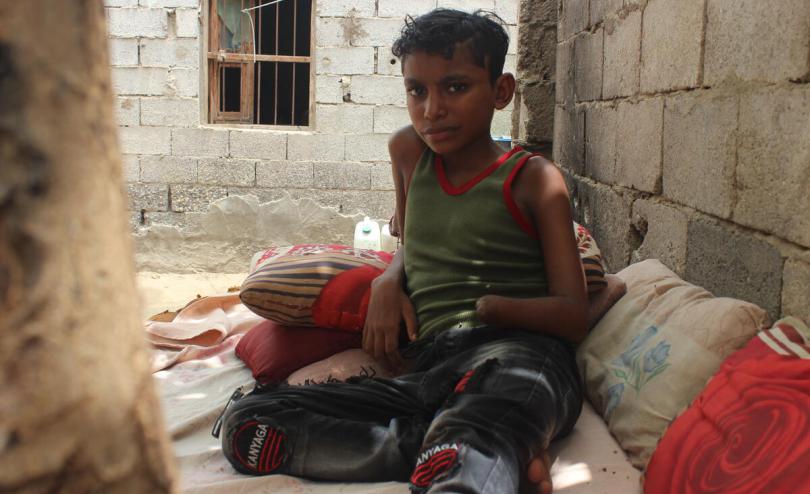
A spike in food prices and collapse of the Yemeni Rial to historic lows in the past month are driving more children into poverty and hunger, with families unable to afford food in local markets, Save the Children warned today.
Many children are surviving on bread and water with devastating impacts on their health, worsening an ongoing hunger and malnutrition crisis and stunting their physical and mental development, with some desperate parents selling their family gold to pay for medical care.
In import-dependent Yemen, the value of the currency has plummeted against the US dollar in the past month, pushing up fuel and food prices at the most rapid rate since the country was last on the brink of famine in 2018.
Since conflict broke out in Yemen in 2015, the price for a month’s supply of wheat flour, cooking oil, beans, and sugar has skyrocketed more than 250%, to 60,000 YER in July 2021 from 17,000 YER in February 2015.
In addition, custom exchange duties have doubled and Sana’a airport has remained closed for a fifth year, blocking commercial goods and medicine from entering the country.[1]
Save the Children said all these factors have pushed more children towards the brink of starvation in a country where already more than half of the 30 million population faces acute food shortages, and more than 400,000 children under five are one step away from famine. [2]
Fisherman Ali and his family of six children had to flee their home after their house was hit by a missile and his son was severely injured. Save the Children covered medical and rehabilitation expenses for the boy’s injury.
The family now live in the port city of Hodeida where Ali’s job is unstable. Even when there is work, his family has to survive on the equivalent of US$1.5-US$3 a day.
Ali said: “We live in very difficult conditions. Most of the time we have only two meals, as we cannot afford dinner anymore. My family used to complain about the lack of food, but now no one complains anymore because they understand the situation we are in. Only my little girl doesn't keep quiet about her hunger. Every night I go to the grocery store to buy her biscuits in order to stop her crying.”
In the southern part of the country, which is the hardest hit by the freefall of the Yemeni Rial, people like Ammar*, a father of six, have had to skip meals so they can give the little food they have to their children.
“We are facing a lack of safety and security and a lack of work opportunities. Even if you get a job often you don’t get your salary. The prices [of food] are extremely high. A 25kg bag of flour reached 27.000 YER (27 US$) which is crazy. At the beginning of the crisis, it was around 11.000 – 12.000 YEM (11-12 US$).”
“My children go to school and sometimes they have something to eat because there are some good people who give them food, but there are other times that they have nothing to eat. Of course, this affects their education. Also when someone in our family gets sick we cannot afford medicine. This situation is very, very sad… it makes us cry”.
“Sometimes we fast so we can feed the children. I can’t hide the fact that our children and us eat very carefully, counting how much wheat we still have in the kitchen and how much cooking oil,” Ammar said.
Ammar has received cash support through Save the Children programmes in the Taiz region but this support cannot replace a broken economy, the organisation said.
Xavier Joubert, Save the Children’s Country Director in Yemen, said:
“We are seeing the Yemeni economy plummet at a fast rate, which is a death sentence for children who are already suffering from acute malnutrition. With the unprecedented increase in food prices, lack of jobs, and with the conflict showing no sign of slowing down, Yemeni parents cannot even buy the most basic food for their children.
“Parents who are bringing their children to the clinics we support for malnutrition treatment tell us that they have only some bread to eat. Others are selling their gold in order to bring their children to the hospital. Over the next few months, we will see more and more children being pushed into acute malnutrition or even death.”
The announcement by the US government that it will be allocating an additional US$165 million for Yemen is a welcome and hopeful development, Save the Children said. But even with this injection of funds, the humanitarian response plan for Yemen is still only 48% funded.[3] International donors must realise that children’s lives depend on humanitarian support and an increase in funding, which is why donors must step up their funding for life-saving programmes in particular, such as nutrition and health.
Yemen is one of the countries hardest hit in the biggest global hunger crisis since the start of the 21st century. A deadly combination of conflict, COVID-19, and the impact of climate change, has pushed hunger and malnutrition levels to a record high, with an estimated 5.7 million children under five on the brink of starvation across the globe.
Save the Children offers cash support to the most vulnerable families in Yemen. It also provides thousands of children with nutrition services, including children admitted for Severe Acute Malnutrition (SAM) treatment and Moderate Acute Malnutrition (MAM) treatment. The charity also supports pregnant and lactating women and offers breastfeeding and nutrition advice.
For more info on Save the Children’s largest-ever hunger appeal, please see this link.
For more info, feel free to reach out:
- Ahmed Bayram, Ahmed.Bayram@savethechildren.org
- Rik Goverde, rik.goverde@savethechildren.org / +44 (0) 7732 602 301
- Out of hours (BST), media@savethechildren.org.uk / +44(0)7831 650409
We have content available: Tareq*, 12, Hodeida, Yemen and Ammar*, 43, Taiz, Yemen.
[2] https://news.un.org/en/story/2021/03/1086932
[3] https://reports.unocha.org/en/country/yemen/card/2eyj6ztfaJ/
